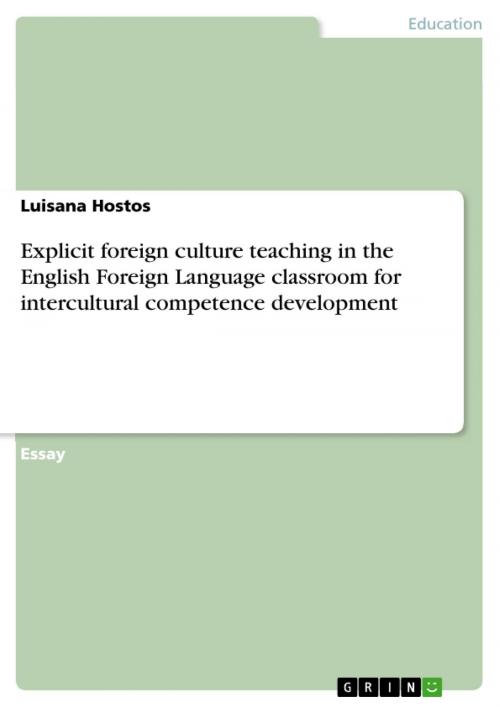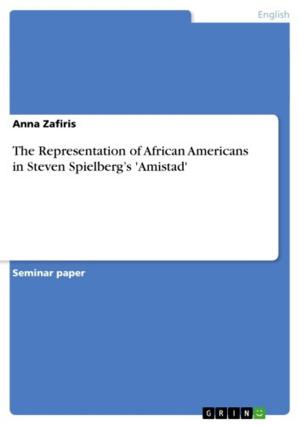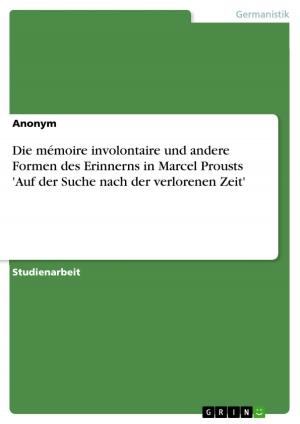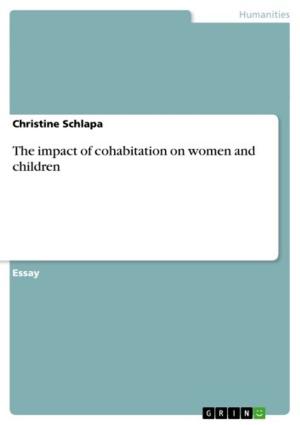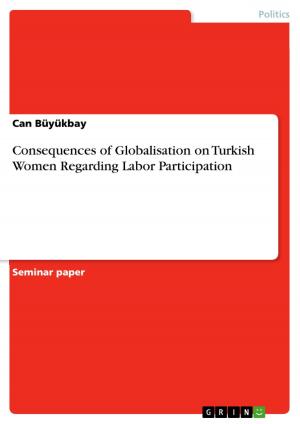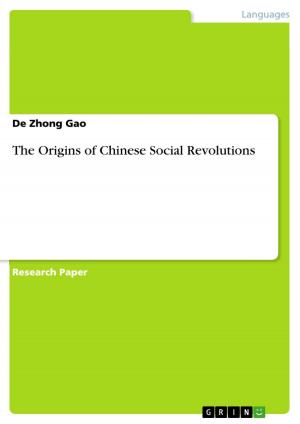Explicit foreign culture teaching in the English Foreign Language classroom for intercultural competence development
Nonfiction, Reference & Language, Study Aids, ESL, Foreign Languages| Author: | Luisana Hostos | ISBN: | 9783656832928 |
| Publisher: | GRIN Publishing | Publication: | November 6, 2014 |
| Imprint: | GRIN Publishing | Language: | English |
| Author: | Luisana Hostos |
| ISBN: | 9783656832928 |
| Publisher: | GRIN Publishing |
| Publication: | November 6, 2014 |
| Imprint: | GRIN Publishing |
| Language: | English |
Essay from the year 2014 in the subject English - Pedagogy, Didactics, Literature Studies, grade: 19, , course: Especialización en la Enseñanza de Inglés como Lengua Extranjera, language: English, abstract: This paper examines foreign culture acquisition and intercultural competence as sociolinguistic components addressed in the English as a Foreign Language classroom due to the relation between culture and language. Sociolinguistic studies explain that when acquiring a new language, one acquires not only new linguistic patterns, new words and new sounds but a new culture. In consequence, this study explores if explicit foreign culture teaching is necessary in the English as a Foreign Language classroom in order to help learners achieve effectiveness in intercultural communication. Main implications of this study suggest the necessity of teaching foreign culture because the classroom represents the central cultural core for English as a Foreign Language students. Also, interculture development significantly varies from one learner to another, which means there is a necessity of including teaching tools in the English as a Foreign Language classroom for enhancing cultural awareness of both cultures, native and foreign, with the aim of having students reach cultural integration.
English as a Foreign Language Professor Bachelor Degree in Education (English Teaching) Specialization in Teaching English as a Foreign Language
Essay from the year 2014 in the subject English - Pedagogy, Didactics, Literature Studies, grade: 19, , course: Especialización en la Enseñanza de Inglés como Lengua Extranjera, language: English, abstract: This paper examines foreign culture acquisition and intercultural competence as sociolinguistic components addressed in the English as a Foreign Language classroom due to the relation between culture and language. Sociolinguistic studies explain that when acquiring a new language, one acquires not only new linguistic patterns, new words and new sounds but a new culture. In consequence, this study explores if explicit foreign culture teaching is necessary in the English as a Foreign Language classroom in order to help learners achieve effectiveness in intercultural communication. Main implications of this study suggest the necessity of teaching foreign culture because the classroom represents the central cultural core for English as a Foreign Language students. Also, interculture development significantly varies from one learner to another, which means there is a necessity of including teaching tools in the English as a Foreign Language classroom for enhancing cultural awareness of both cultures, native and foreign, with the aim of having students reach cultural integration.
English as a Foreign Language Professor Bachelor Degree in Education (English Teaching) Specialization in Teaching English as a Foreign Language
